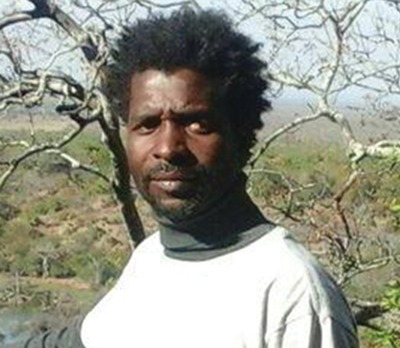
PRESIDENT Emmerson Mnangagwa on Saturday extended the 21-day national lockdown to control COVID-19 spread by a further two weeks to May 3, but in his statement acknowledged that the fragile Zimbabwean economy had taken a hit – a big hit and recovery was going to be slow and painful.
Many countries across the globe introduced lockdowns to flatten the curve of COVID-19 pandemic infections. The pandemic to date has infected over 2,5 million people and caused nearly 180 000 deaths worldwide (mostly the poor working class and blacks disproportionately) as of yesterday afternoon.
Mnangagwa said: “Government is acutely aware of the need to keep the economy running, albe-it at subdued levels.
With this objective in mind, government has decided to allow the mining sector to resume or scale-up operations within the parameters set by the World Health Organisation … In respect to our manufacturing sector, I have further directed that limited operations resume in the national interest, but mindful of the public health safeguards.” The pandemic, besides stretching health budgets and resources, has had a devastating effect on the world economy, particularly aviation, tourism, manufacturing and commodity markets.
The International Monetary Fund (IMF) in its latest report says the world economy may contract by as much as 5% and sub-Saharan Africa for the first time in two decades will record -1,6% economic growth.
Many governments across the globe have passed bailout budgets running into billions of dollars to cushion their industries and avoid massive job losses. The US administration has passed a US$2 trillion bailout package for its companies and vulnerable citizens, the European Central Bank has provided a ₧500-billion bailout for EU member States in addition to individual countries’ bailout packages. In Sadc, South Africa has provided a US$26,3 billion bailout to struggling companies.
In January, the European Intelligence Unit projected that Zimbabwe’s economy was to contract by a massive 12,5% in 2020 and this was before the COVID-19 pandemic. Conservative estimates after COVID-19 put Zimbabwe 2020 growth at between -20% and -25%. This is extremely bad for an economy that is 90% informal and has no access to funding from multilateral financial institutions such as IMF, World Bank and the African Development Bank because of the US economic sanctions.
Zimbabwe’s perilous state was further exposed in a leaked Reserve Bank of Zimbabwe paper on de-dollarisation. The paper’s data has not been disputed, except that the person who released the document was not authorised. The paper revealed that Zimbabwe’s public debt to GDP ratio was at a staggering 135%, twice more than the acceptable rate in Sadc.
- Chamisa under fire over US$120K donation
- Mavhunga puts DeMbare into Chibuku quarterfinals
- Pension funds bet on Cabora Bassa oilfields
- Councils defy govt fire tender directive
Keep Reading
Zimbabwe’s debt overhang and failure to have access to international financial institutions concessionary loans means the country has no fiscal space to bail out struggling companies that have been exacerbated by the COVID-19 lockdown. It is, therefore, a grim reality that ailing companies will go into administration or complete shutdown with thousands of workers retrenched.
The Confederation of Zimbabwe Industries in a position paper released last week said 80% of its members did not have the capacity to pay more than a month’s salary without doing any production. This means many companies will have to restructure their labour whenever the national lockdown is completely lifted.
Zimbabwe’s economic position is further made untenable by dwindling foreign currency inflows. The country’s foreign currency mainly comes from commodities (gold, chrome, platinum, diamonds and tobacco) and diaspora remittances.
However, these two main streams of forex have been hit hard by COVID-19 as commodity prices have tumbled on the international markets and remittances waned as those who used to send on average US$1,7 billion are also feeling the pandemic’s effects in their foreign bases.
If Zimbabwe has to avert falling into the abyss then it has to start looking at internal models of raising revenues. These include a massive drive at tax compliance by registered companies, improving the public procurement process, aggressive combating of corruption and reviewing the tax regime to make big companies carry a fair share of their tax burden that is currently disproportionately borne by individual taxpayers.
Mnangagwa, however, does not seem to have the political will to robustly fight corruption. His brinkmanship tactics soon after assuming power via a coup in November 2017 have been exposed. The President then promised to name and shame forex externalisers and to pursue properties and bank balances in offshore accounts. His administration has failed to live up to the image of transparency and accountable poster-boy he seeks, as it has concluded some murky procurement deals particularly in the disgraced command agriculture programme that was fronted by Kudakwashe Tagwirei’s Sakunda Holdings.
The regime can only find succour by reviewing the tax regime and have big companies paying a fair share of taxes instead of hiding behind tax deferments, tax holidays, tax avoidance or even outright tax evasion. The super wealthy and big companies have to come to the party and stop hiding behind community social responsibility programmes.
It is not far-fetched or prophecy to say the deteriorating economic conditions are a recipe for social disaster and political instability.
Mnangagwa, therefore, has to bite the bullet and act decisively on the economy and offer no excuses be they natural disasters or the late former President Robert Mugabe’s ruinous economic policies.
Paidamoyo Muzulu is a journalist and writes here in his personal capacity.











